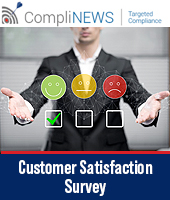Ethical behavior and the bottom line
Publish date: 08 August 2019
Issue Number: 13
Diary: CompliNEWS Ethics
Category: Ethics
By Lee Rossini
Most clients place a premium on having a trusted relationship with their financial adviser. To achieve this, the financial adviser must demonstrate a high standard of integrity and ethical behavior. It makes sense that financial advisers who are honest and ethical in their dealings with clients will gain their clients’ trust and loyalty. From a business perspective, a reputation for being trustworthy is a competitive advantage.
This view is supported by research that highlights the fact that placing a high priority on the ethical behavior of a business is essential to the long-term success and sustainability of a business. Highly respected business consultants, Jim Collins and Jerry Porras[i], analysed several exceptional companies that have stood the test of time, in order to discover the timeless management principles that have consistently distinguished these companies. Following their research, the authors concluded that visionary companies pursue a cluster of objectives; one of which is making money although this is not necessarily the primary objective. These companies seek profits; however, they are equally guided by a core ideology, core values and a sense of purpose beyond merely making money. In addition, these visionary companies make more money than the purely profit-driven comparison companies.
The research of Collins and Porras identified both direct and indirect costs associated with unethical behavior in a business. The costs can take any one or more of the following forms:
- Unethical behavior harms the potential to attract new clients. Research shows that clients are influenced in their buying decisions by their perception of the ethics of a company.
- Unethical behaviour affects the share price of a company. The profitability of publicly traded companies is quickly eroded when evidence of unethical behavior comes to light. When investor confidence is lost, it can take years, if ever, to rebuild trust and profitability.
- Unethical behavior in a business legitimizes and increases the risk of employee fraud.
- Unethical behavior affects productivity. Research has demonstrated that when employees do not trust each other or management, morale is low, stress levels are usually high and work output is undermined. This is especially noticeable with highly skilled employees who may feel demotivated and highly stressed by unchecked unethical behavior taking place at work.
- Unethical behavior impacts on open and transparent communication. When unethical behavior goes unchecked in the workplace, the incidents of reporting misconduct is significantly reduced.
A reputation for unethical behavior will affect the ability of a company to recruit and retain employees. Potential employees stay away from these companies as there may be damage to their own reputations through association with a tainted company. This may impinge on the ability of a company to recruit the staff needed. In addition, a high turnover of staff will also shrink profits as excessive time and resources are used to recruit new staff.
Incidents of absenteeism may increase as a result of unethical workplace practices. If employees are unable to voice their concerns, morale plummets, resulting in employees taking excessive amounts of time off work.
If found guilty of an ethical breach, the financial cost to a company in the form of fines or legal settlements, damage to reputation, will not only affect their bottom line, but may also result in closure of the company.
There is no doubt that unethical practices cost companies money in both direct and indirect ways. Evidence supports the notion that a high standard of ethical behavior is good for business. This is demonstrated through stronger financial performance, including a higher return on equity and more efficient use of capital. Ethical leadership by owners and senior management makes good business sense as it offers the following benefits:
- the risk of business liabilities is reduced,
- employees have a benchmark against which to make sound decisions,
- high-quality clients who value ethical behavior are attracted to the business,
- highly skilled potential employees are attracted to the business,
- the awarding of costs and determinations against the company are reduced and most importantly,
- the bottom line of the business is increased.
To prevent the bottom line of a company from being negatively affected by unethical behavior, the owners and management should focus on awareness, accountability, trust, equity and justice. Company and personal integrity should be placed above all. In the past, making a profit was the only priority; today, companies are expected to balance the making of a profit with social and environmental considerations. Ethics should be elevated within each business; when taken seriously as a key management focus area, practicing a high standard of ethics can be a source of competitive advantage and increased profits.
[i] Collins J and Porras J, Built to Last: Successful Habits of Visionary Companies (1994) Harper Business Essentials.





